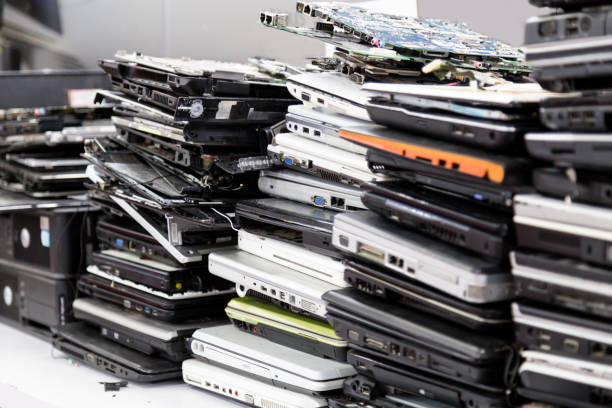How computer recycling can help save the environment

With most businesses and individuals updating computer equipment every few years, it can be easy to let old computers and laptops start to pile up in a storage cupboard somewhere. Often our reticence to do anything with our old computer equipment is because we don’t actually know what to do with it or comes from a fear about data – both personal and business as we are unsure how much of it could be retrieved from a computer. As a result of this, old computer equipment is either kept or smashed with a hammer before being thrown in a skip or taken to the tip. Sometimes it’s disguised with the general rubbish.
Reuse is crucial
There’s an increased awareness of the waste and resources associated with the manufacture and disposal of computer equipment. The world’s appetite for technology is voracious and expanding. It’s crucial that we reuse the materials used in the manufacture of computers as many times as possible. Computer recycling safely repurposes old computer equipment, either finding new homes for equipment that still works or breaking it down into its reusable components and disposing of harmful materials safely.
Recycling is part of your Carbon Reduction plan
Companies are now being challenged to become Carbon Net Zero by 2050 and more importantly having a plan to achieve this. Reusing equipment reduces manufacturing emissions, costs and resources
Recycling saves landfill
As land becomes ever more limited, the cost of landfill to local authorities and ultimately taxpayers is only going to get higher. Increasingly computer equipment is becoming a problem at landfill sites. It’s not only about volume. Computers contain potentially toxic materials.
Copper, gold, aluminium, and certain kinds of plastic are all contained in computers. As new computers are created, these precious resources have to be found and extracted. The more that can be recycled, the less need there is for new extraction.
Hazardous materials are safely disposed of
Substances such as mercury and lead can be found in computers. If they end up in landfill, they can ultimately enter the soil or streams and rivers causing dangerous pollution to insect life, aquatic life, animals and ultimately ourselves. It’s imperative that we keep as much of this harmful material out of the ground.
Recycling leads to restoration
It’s not uncommon to see old computer equipment sitting in skips outside homes and offices. It might seem like an easy solution, but the potential downsides are great. As computer technology becomes more and more widespread, we’ll need to develop a recycling habit if we’re not to face a huge global problem. Much of the UK’s computer waste ultimately ends up in landfill either here or in developing countries where the land is cheap, passing our own problem onto other people.
Always use a reputable company to recycle your old computer equipment
Unfortunately, waste disposal attracts its fair share of scammers. To be 100% certain that your old computer equipment isn’t ending up being fly-tipped, always seek out a reputable computer recycling company like ICT Reverse. Ensure the company holds appropriate accreditations such as ATF Licence, WAMITAB and Waste and Hazardous Waste Transfer Licences.
The benefits of working with ICT Reverse
ICT Reverse is one of the UK’s leading IT asset disposal companies and we can help you with any questions you may have about recycling any of your old IT equipment. Why not contact us today on 01524 580900 to find out more about our recycling process and how we can help you dispose of your old computer equipment in a way that benefits your business and helps the environment?
